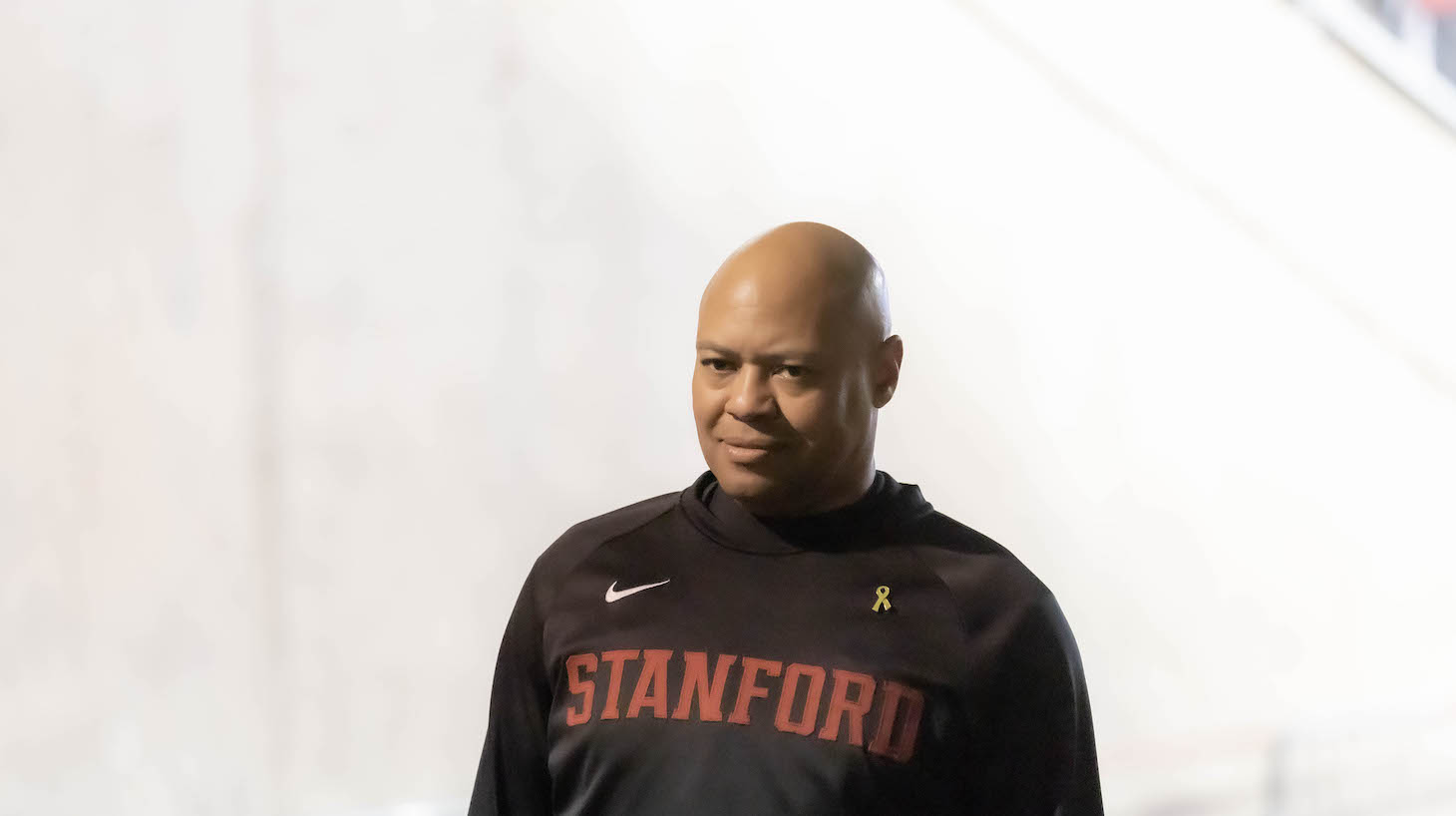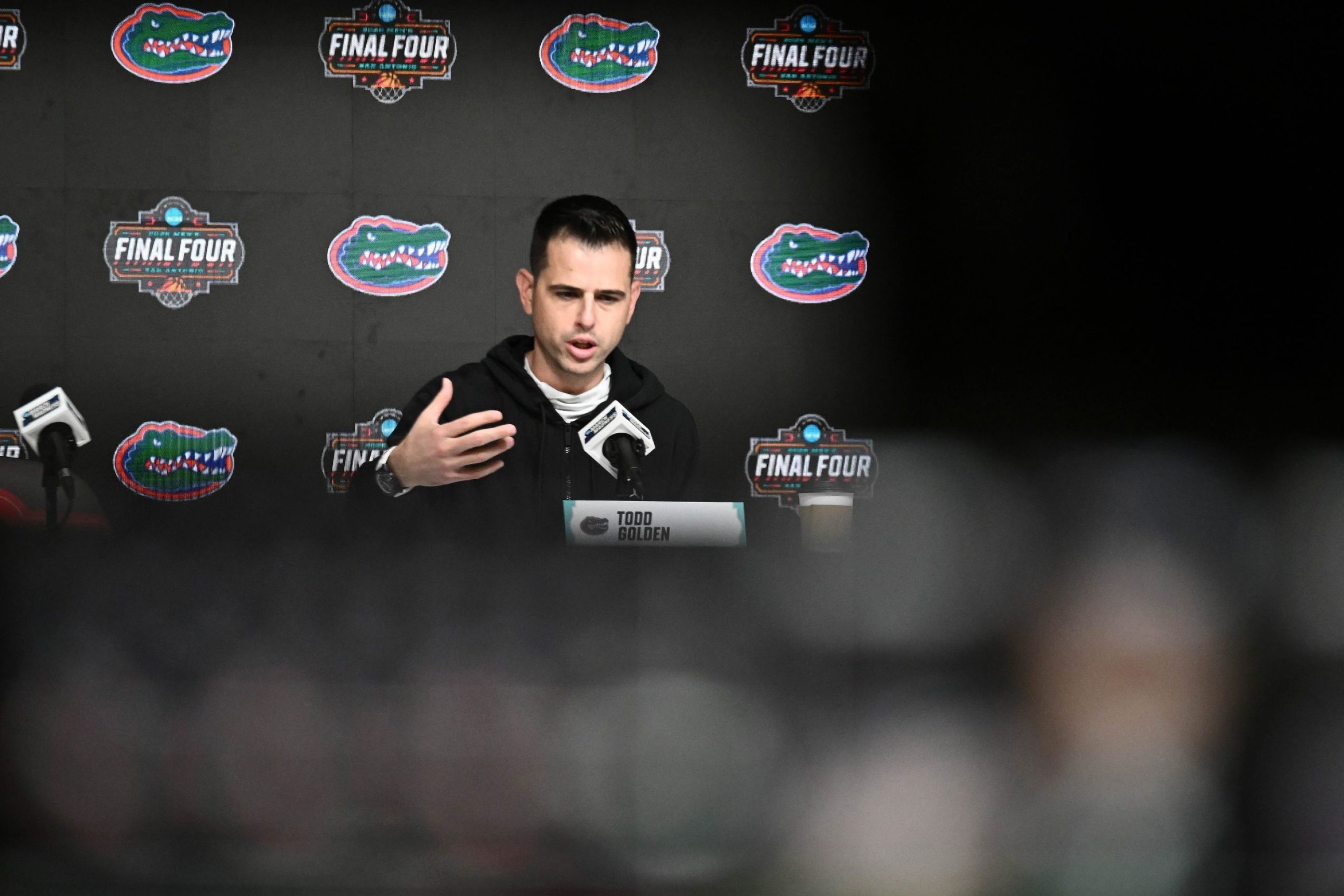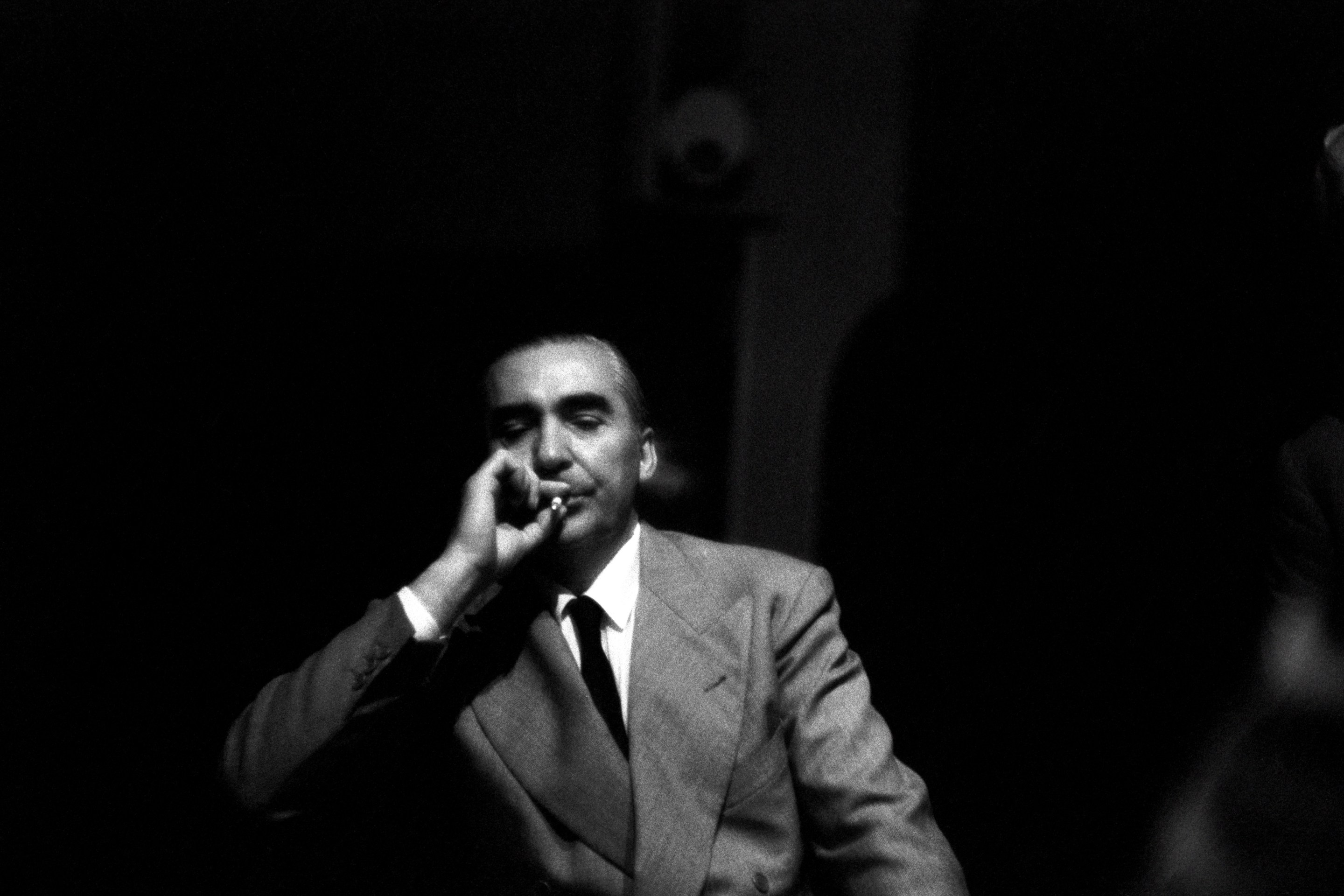The Friday news dump was one of the quaintest old constructs of the pre- and early internet era, a place late in the day for people or the companies who ate their souls to hide unpleasant news without giving the media jackalhood time to chew on its (mostly imaginary) implications. It died with the true 24-hour cycle, in which nothing happens without everyone knowing about it within minutes.
But nobody ever thought that there might still be a time to slip a story past the guards until Stanford and its longtime football coach David Shaw detached from each other moments before 3 a.m. Eastern on Sunday morning. Even if you convert that to West Coast time, it's still damned near midnight, when most folks are arguing about who is picking up the tab and not watching the last lonely television above the entrance to the loo. Put it this way—no matter who decided to do what to whom after the season-ending loss to BYU, they could not have chosen a better time to keep it a secret in plain sight.
That may be the only reason Shaw's departure is noteworthy at this point. Stanford finished the year 3–9 and are now 14–28 in the COVID era, and while Shaw was once a go-to name when NFL coaching rumors cropped up (an 82–26 record and eight consecutive bowl games will do that for a fella), he turned them all down with such vigor that people stopped asking long before the results southed so aggressively. Shaw had by his assessment the perfect job—scandal- and attention-free, with almost no interference from the administration as long as the lads kept their grades unnoticeable and their police profiles nonexistent. All he had to do was coach the football team, and because there was little local or national media attention to take up his free time, he had none of the annoyances and all of the salary (an estimated $9 million per, the highest in the Pacific 12 Conference until Lincoln Riley was hired at USC a year ago). He was on eternal scholarship, and when he exited/was guided toward the exit, he was the tenth longest serving coach in the sport.
Yet he was also the coach who cast no shadow, at least not one that any outsiders found compelling. Stanford is an almost annoyingly insular place athletically, and as traditional media like college beat coverage fades and relocates east- and southward, the place once charmingly referred to as The Farm has sought out the protections of the farm—specifically, the joy of being overlooked.
That's what makes all this worth your bother then—the time stamp on his departure. Having somehow won games early in his career and the sweet release of anonymity when that stopped, Shaw was given the perfect way out—an 8 p.m. game local time that lasted like most college football games do, interminably. He then strung out the waiting time for his (presumably) poorly attended postgame presser to announce that he was done doing this particular do, which meant he left the job in the last available part of the week where news isn't made—after closing time and before sunrise services, if those are still a thing.
This bit of good fortune for him was also made possible by the continued gray fade of the Pac-12, which between the rotation of the Earth, its own lousy television contracts and the West Coast's increased tilt away from college sports, has given it the national aura one finds around Conference USA—which is none. The entire college football day was eaten by Michigan embarrassing Ohio State (and with it MMQB reporter/Ohio State honk Albert Breer), LSU potentially blowing a playoff berth by spewing all over its shoes in a loss to Texas A&M, and Deion Sanders's grand HBCU experiment seemingly ending with the rumor of a job offer by Colorado, a Pac-12 school with even less profile than Stanford.
In fact, now that it looks like USC might actually become the fourth team in the playoff with Michigan, Georgia and TCU, even the maligned Pac-12 has reasons to leave Shaw to his own post-career devices. If we believe he was that rarest of football coaches, the one who only had to do the coaching and recruiting parts, he went out as he came in: without a state trooper guiding him off the field or cameras in his face. He might have preferred the results that create notoriety, but he escaped the notoriety part with both obstinacy, deftness and the luck of a slowly diminishing conference in a sport increasingly run by the midwest and southeast. When Los Angeles wants to get closer to Chicago, Indianapolis and Detroit . . . well, you get the drift.
Shaw has done television before and may decide to do so again because the money's easy and the degradations are few unless ESPN hires him for the Lee Corso mascot hatrack role. He is only 50, after all, and he could even choose the path of madness and take another coaching job because $9M/year doesn't spend quite the way it used to and because he always craved the frothy excitement of texting at 11 p.m. with Tom Fornelli or Heather Dinich. He said he wasn't burned out by the job, but he is not that much different than the place he is leaving/is leaving him. When he said, "Stanford historically doesn't change quickly. We are methodical. . . . It's been difficult but it's been difficult for everybody," he was also describing himself.
So it goes. It took three hours for any of the big outlets to notice he'd left, because that is also Stanford's way as well as his—out in the open and under cover of darkness simultaneously. He leaves with nothing to hide and plenty of cover, and Stanford gets to freshly decide what if anything it wants its football program to be.
For me, I'm seeing Lane Kiffin. He just a signed a new deal at Ole Miss and is therefore open for any new gig that comes along.






